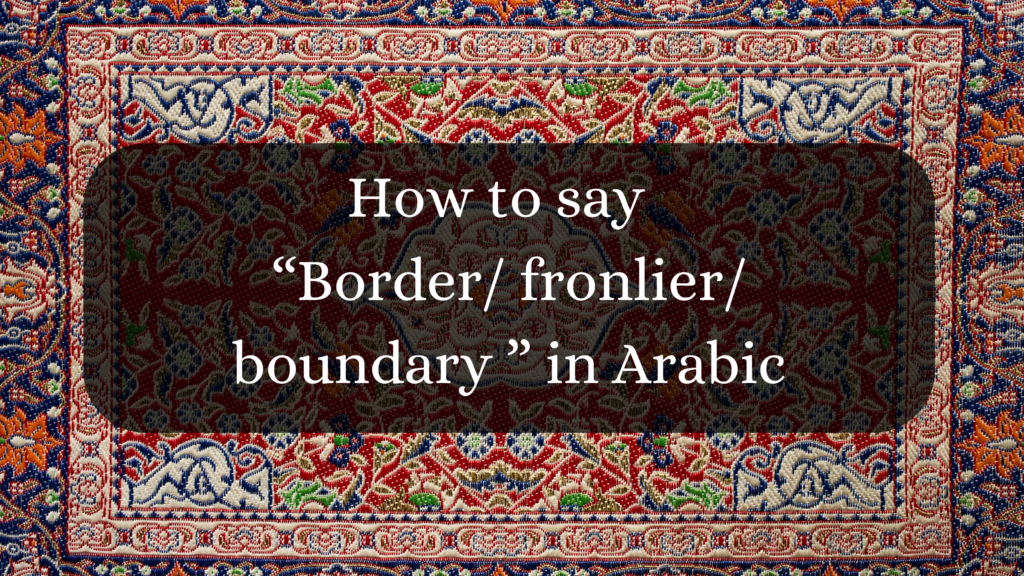
Border / Frontier / Boundary
The words border and frontier both mean the line that separates two countries. In the past, frontier was usually used when there were customs or passport controls. Today, border is also used for those situations, while frontier is now more often used in a figurative sense, like talking about limits. Boundary is generally used to describe the limits of smaller areas, like cities.
In Arabic, the word حُدُود (plural of حَدّ) is used for all of these meanings. Another word, نِطاق (plural نُطُق), is also used, but it cannot be used for country borders that have customs or checkpoints. Often, the Arabic plural حُدُود is translated as singular border in English. Here are some examples:
“We crossed the border at midnight.”
عَبَرْنَا ٱلْحُدُودَ عِنْدَ مُنْتَصَفِ ٱللَّيْلِ.
“The city boundaries are often difficult to define.”
إِنَّ حُدُودَ ٱلْمَدِينَةِ غَالِبًا مَا يَصْعُبُ تَحْدِيدُهَا.
“The army arrived at the border with Israel (/ the Israeli border).”
وَصَلَ ٱلْجَيْشُ إِلَى نُطُقِ إِسْرَائِيلَ.
“We were close to the city limits.”
ٱقْتَرَبْنَا مِنْ نُطُقِ ٱلْمَدِينَةِ.
“The government announced its willingness to retreat to the June 1967 border(s).”
أَعْلَنَتِ ٱلْحُكُومَةُ ٱسْتِعْدَادَهَا لِلِٱنْسِحَابِ إِلَى خُطُوطِ حُزَيْرَان ١٩٦٧.
“Our University is trying to push back the frontiers [lit. ‘horizons’] of science.”
تُحَاوِلُ جَامِعَتُنَا أَنْ تُوَسِّعَ آفَاقَ ٱلْعِلْمِ.
